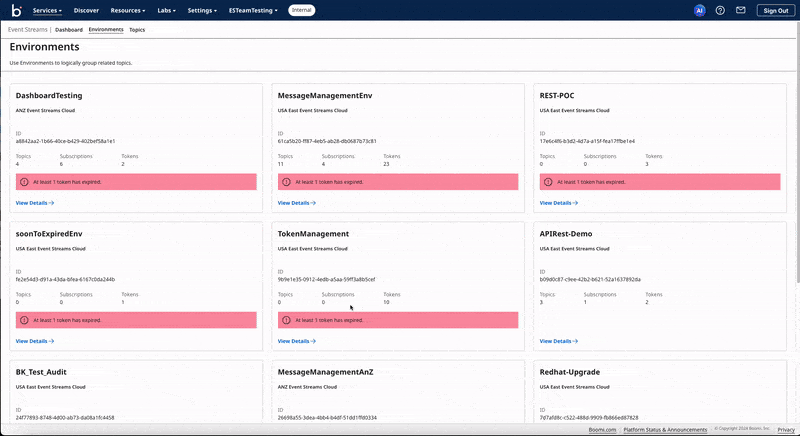We’re thrilled to announce a significant enhancement to Boomi Event Streams: the introduction of a REST API! This new feature opens up a world of possibilities for developers, businesses, and anyone who wants to harness the power of real-time event data in a more flexible and integrated way.
What Is Event Streams?
For those new to our platform, Event Streams is designed to handle the high-velocity world of event-driven data. Whether tracking user interactions, monitoring system performance, or aggregating data from various sources, the Boomi Event Streams service offers real-time insights to help you keep up with the ever-changing digital landscape.
What Does the REST API Bring To the Table?
This new Rest API opens the door to a wealth of possibilities. Here are a few things you can expect from this new capability:
1. Enhanced Flexibility
With the REST API, you can now programmatically interact with Boomi’s Event Streams offering and other third-party applications. API calls allow you to create, retrieve, and delete event data. Whether you want to integrate event data with your existing applications or build new tools from scratch, the REST API provides the flexibility you need.
2. Seamless Integration
The REST API is designed to integrate smoothly with your existing systems. Use it to pull event data into your analytics platforms, CRM systems, or custom dashboards. By automating data flow and reducing manual intervention, you can streamline operations and enhance productivity.
3. Real-Time Data Access
One of the standout features of this REST API is its support for real-time data initiatives. You can access the most current event data as it happens, which is crucial for applications where timing is everything — such as fraud detection, live user engagement tracking, or real-time decision-making.
4. Improved Automation
Leverage the REST API to automate repetitive tasks and processes. For instance, you can set up automated triggers to respond to specific events or conditions, reducing the need for manual monitoring and intervention. This not only saves time but also ensures consistency in your workflows.
5. Interoperability
The REST API promotes easy interaction between disparate systems, allows a range of applications to publish messages, and improves overall accessibility.
Why REST API for Event Streams?
This REST API enables seamless message production for applications relying on HTTP-based operations. This is important because HTTP is the standard protocol used by web applications, making integrations more straightforward and widely supported. HTTP simplifies message production, reduces development time, and enhances user accessibility, allowing faster implementation. This will enable applications to publish messages easily, improving their efficiency and integration capabilities. The REST API empowers applications to respond quickly to real-time events and changes in data, enhancing overall user experience and performance.
How Does It Work?
Boomi integrates REST API endpoints for each topic within the Event Streams, enabling message production through standard HTTP methods. We use a user-friendly interface that allows Boomi users to easily navigate the platform, view environments, and copy specific REST API URLs needed for message production. Boomi provided a secure authorization mechanism in that each API request requires an Environment Token as a Bearer Token in the Authorization header, ensuring safe access to the service. Finally, we provide a Message Management UI to track produced messages and enhance user experience and support.

We’re excited to see how you’ll leverage our new REST API to transform your event data into actionable insights and drive real-time decisions. If you have any feedback or questions, please contact our team. Here’s to a new era of flexibility and integration with Boomi Event Streams!
Happy coding!
For more details, please visit the Boomi Event Streams REST API documentation.


 English
English 日本語
日本語